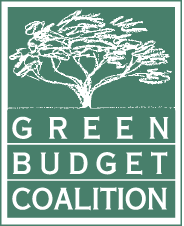The Green Budget Coalition maintains that the impacts of plastic production and pollution on the triple crises of climate change, nature loss and pollution are a catastrophe in the making.
With the final Intergovernmental Negotiating Committee session (INC-5) for a new Global Treaty on Plastic Pollution occurring in late 2024, it is expected that the new Treaty will be presented in 2025. Canada must be ready to act to support its implementation globally and at home.
Canada’s 2030 Nature Strategy paves the way to support the new Treaty by positioning pollution as “one of the five largest direct drivers of global biodiversity loss.”
There are known to be over 13,000 chemicals used in plastics and plastic production. Many of these chemicals have not been assessed for their safety. Domestic action should build on the long- standing expertise of the Chemicals Management Plan team, led by ECCC and HC, in order to ensure a comprehensive and consistent path in addressing the chemicals used in the production of plastics contributing to the impacts from plastic pollution. This would also ensure that no new plastic substances or their alternatives are introduced into the Canadian marketplace without undergoing ecological and health risk assessments, and the implementation of management measures are in place to avoid the impacts associated with plastic pollution. Addressing the unnecessary proliferation of plastics in our environment will also help Canada achieve its climate goals.
The federal government should continue its global leadership in negotiating the new Global Treaty on Plastic Pollution and be prepared in 2025 to contribute financially to its implementation globally while accelerating plastic pollution work domestically.
Recommended Investment:
$1 billion over three years to support global implementation and domestic action on the Global Treaty on Plastic Pollution that would include:
- Contributing to the implementation of the Global Plastic Treaty [ECCC, GAC];
- Establishing specific funding for Civil Society Organizations (CSOs) in the global south to access technical expertise, develop innovative solutions and engage the public [ECCC, GAC];
- Establishing specific funding for Indigenous Rights Holders to access technical expertise on implementation of the new treaty [ECCC];
- Accelerating domestic work to address the lifecycle of plastics from production to waste management, with a specific focus on chemicals used in plastic production (including toxic additives), reduce plastic pollution, prevent problematic plastic products and, proactively eliminate harmful chemicals for use in manufacturing [ECCC, HC];
- Reducing plastic pollution with specific targets in shipping, ghost fishing gear, and aquaculture [ECCC, DFO, TC]; and
- Increasing funds to enforce regulations on export of hazardous waste. [ECCC, CBSA]
- Budget breakdown will be available at a later date.

